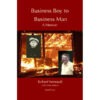As hard as it may seem now to accept that painful memories can heal if you face them, I hope you will trust me when I say that memoir writing—done well—will be therapeutic.
The forgotten memory
It is perhaps inevitable, when you write your memoir, that painful memories you had “forgotten” will resurface. These may stem from prolonged poverty, childhood humiliation, abuse, abandonment, addiction, etc. But, it doesn’t matter what the source of your painful memories is: you are weighed down by these memories and memoir writing is something you can do to alleviate that pain and to move on with your life.
Or, you may already be aware of your painful memories but are unwilling to evoke them, to re-live with them long enough to write about them. Perhaps they are still too difficult to linger with, or perhaps you are afraid you will not be able to handle the pain if it were to come back and you will become stuck again in that part of your life. This is, of course, a real concern—although becoming stuck again is by no means a probability.
Certainly psychological therapy can be an effective tool for gaining better emotional health. If therapy calls out to you, by all means pursue it. I would say that, if you are terrorized at the prospect of reliving an event, you would be wise to seek professional counseling.
There is another avenue that has been useful to me. Painful memories can heal when you submit them to the process of writing.
The incapacitating memory
If a memory is so difficult that you are still afraid of it, take this as an indication you haven’t gotten over it yet—and it will be such a relief when you do. If a memory is still sapping your emotional energy—whether you are consciously aware of it or not, memoir writing may be very healing for you.
Many of our coaching and editing clients have said to us, “Writing has proven to be therapeutic. It costs so much less than counseling, and in the end, you have a book of memoirs.”
In conjunction with this category, you will do well to read the articles about telling the truth in a memoir. It is a companion section as truth and pain are travel buddies from way back.
The many articles below will help you to work with and through painful memories by writing through them—thoughtfully and sensitively.
In conclusion
The following articles do not provide a “magic bullet,” but together they can point you in a direction you need to go in to deal with your pain. If painful memories are sapping your emotional energy—whether you are consciously aware of it or not, you will find these memoir-writing posts healing.

Difficult, Painful Memories Can Make a Memoir More Psychologically Astute.
We all arrive at adulthood with some difficult painful memories. In this post, I offer you procedures for dealing with and healing those memories.
First of all, writing about painful memories should not be an occasion to re-traumatize yourself. Stop for the moment if you feel overcome, but if you feel ready to write about a painful time, begin by writing all the details of the memory. Details need not be significant. If there was a cup of coffee on the table, mention it. You will find that little details help bring your memory back.
Yes, difficult, painful memories are disturbing.
[Free Membership required to read more. See below. ]
We'd love to have you access this content. It's in our members-only area, but you're in luck: becoming a member is easy and it's free.
Already a Member?
Not a Member Yet?

Banish Fear of Revealing Too Much: Be a Bigger Presence in Your Memoir
The fear of revealing too much of ourselves in the memoir we are writing can be paralyzing.
We wonder: “What will people say? How will people react to what I am revealing?” So…
We hold back in our writing. We stop ourselves from personal revelation, from sharing secrets.
The fear is founded—it’s not always a friendly world out there. And, of course…
[Free Membership required to read more. See below. ]We'd love to have you access this content. It's in our members-only area, but you're in luck: becoming a member is easy and it's free.
Already a Member?
Not a Member Yet?

Who is Your Memoir Narrator?
This may sound like a trick question, but it’s not. In fact, “who is your memoir narrator?” is a very serious question that will determine—or at least greatly influence—the tone and the theme of your narrative and how your reader views your story as being truthful.
Your choice of memoir narrator and the consequences of this choice.
[Free Membership required to read more. See below. ]
We'd love to have you access this content. It's in our members-only area, but you're in luck: becoming a member is easy and it's free.
Already a Member?
Not a Member Yet?

Writing more Deeply: The pain in telling the truth
My new memoir, French Boy (due out in the summer of 2023), is about my childhood. Much about this time in my life has a context that is unique and consequently different from that of my contemporaries. This memoir has a place in the world of memoirs, and I want it to find that place, but writing it has also brought up some pain which I did not want. Once again, I found out that there is pain in telling the truth.
My parents were thoughtful and loving people so their behavior towards me is not an issue. I am not writing about a reprehensible or shameful experience. I am dealing with a more average pain that is both little for the world and big for me.
[Free Membership required to read more. See below. ]We'd love to have you access this content. It's in our members-only area, but you're in luck: becoming a member is easy and it's free.
Already a Member?
Not a Member Yet?

Work With or Through Pain: Writing Painful Memories
In this video, Work With or Through Pain: Writing Through Painful Memories, I talk about writing through painful memories. Pain is often a barrier to memoir writing. Who wants to revisit difficult times? Although delving into the past is a generally pleasant experience and promotes healing and growth, it can also be painful.

The Theme-focused Memoir
While many of the people whom I have helped to write a memoir have come ostensibly to write about their lives – to celebrate some achievement, I would say that many of these people are also writing a mission-driven memoir, a theme-focused memoir.
Behind the desire to tell about their lives, there is some intent to promote a point of view. This comes under many guises. Generally, of course, this point of view is called “theme.”
The theme-focused memoir is the most common model.
Writing a manuscript only of one’s experience—the dates, the facts, the activities—may often not enough to entice the reader—at least, it will not interest the reader who is not family and friends. [Free Membership required to read more. See below. ]
We'd love to have you access this content. It's in our members-only area, but you're in luck: becoming a member is easy and it's free.
Already a Member?
Not a Member Yet?

Surviving Childhood Abuse: A Writer’s Experience
Congratulations to Denise Brown on the publication of her book, Transcending Darkness: A Memoir of Abuse and Grace. I recently had the opportunity to interview Denise about her experience writing her book on surviving childhood abuse. I am pleased to share her experience. To read Part 2, click here. To read Part 3, click here.—DL
Denis Ledoux: Can you tell our readers what your book is about and why you were impelled to write it? What was driving you to spend the time, energy and money to get this book out into the world?
Denise Brown: Transcending Darkness is a memoir about the abuse that I experienced during my childhood. Abuse led me on a path of self-destruction. This path encountered God and his mercy in unexpected ways. It sounds like a crazy story, but I began writing my memoir when I was in college after having an incredible dream. An angel brought me to visit three teenage girls who were suffering emotionally. Each of them had been reading a book and were crying. I realized that the book was giving them a glimmer of hope for their futures. Then the angel revealed to me that it was my book that I had not yet written that they were reading, and that I was being given the choice of helping them or not. After that, I couldn’t get the dream out of my head! I began writing what would become Transcending Darkness a few days later.
DL: Can you tell us how long it took from the time you conceived the book to the time you had it published? How many years did you spend in active writing? Were there long breaks in between active writing periods? If so, what happened to get you writing again? Writing about surviving childhood abuse must have been difficult. emotionally
[Free Membership required to read more. See below. ]We'd love to have you access this content. It's in our members-only area, but you're in luck: becoming a member is easy and it's free.
Already a Member?
Not a Member Yet?

“Making Nice” Will Trip You Up
We all have family stories that we have heard over and over again. When they are told in family gatherings, no one expects any contradiction. After all, the stories are the “truth” about someone in the family but “making nice”—not telling the truth in memoir—will trip you up.
How do you write truth in memoir writing?
[Free Membership required to read more. See below. ]
We'd love to have you access this content. It's in our members-only area, but you're in luck: becoming a member is easy and it's free.
Already a Member?
Not a Member Yet?

Revealing Ourselves in a Memoir — 3 Reasons We Don’t Do It.
Why are we afraid of revealing ourselves in a memoir? While writing our stories, all of us, at one time or another, come against the fear of revealing too much of ourselves. The fear is founded—it’s not always a friendly world out there. And…
As we reveal too much about ourselves, we may be revealing too much about someone else.
But, excessive revealing is generally not the problem most memoir writers face. Revealing too little is a much more frequent problem for writers I coach or edit.
Often revealing ourselves in a memoir too little can come about because:
[Free Membership required to read more. See below. ]
